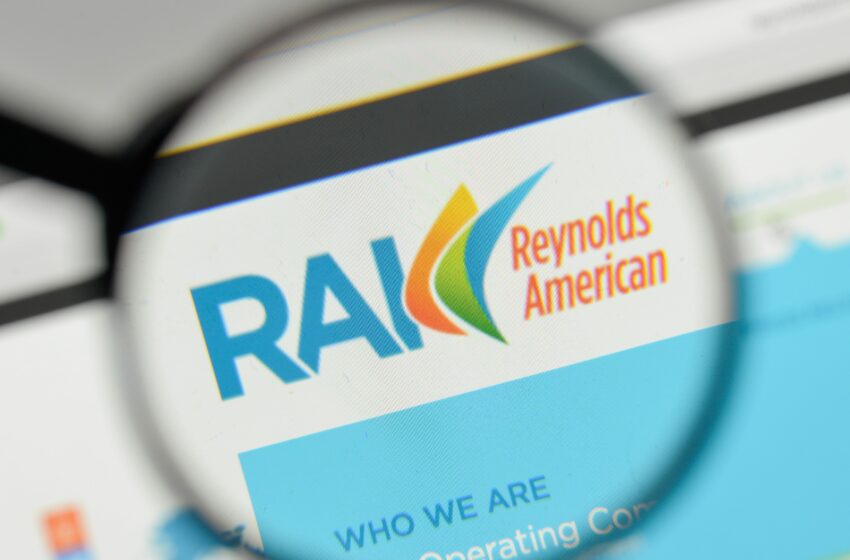RJR Complaint Could Wreck Vaping Industry
- Featured News This Week Regulation
- October 18, 2023
- 0
- 5 minutes read

Credit: Casimiro

The implications could be far-reaching. Reynolds American Inc. (RAI) has filed a U.S. International Trade Commission (ITC) complaint charging multiple manufacturers, distributors and retailers of several popular disposable vaping devices with unfair importation. It is one of several recent actions Reynolds has made to remove its competitor’s vaping products from store shelves.
Reynolds is asking the ITC to investigate and issue an exclusion order preventing further U.S. imports of disposable vaping products. Several legal scholars have told Tobacco Reporter that if the ITC agrees with Reynolds, all flavored disposable vaping devices without marketing authorization could be stopped at the border and prevented from entering the U.S. market.
Reynolds wants the ITC to issue a permanent “cease and desist order” prohibiting any businesses from selling illegal vaping products. The move would push nearly the entire vaping industry underground, with the exception of products owned by major tobacco companies such as Reynolds that have received marketing orders from the FDA.
Several businesses were named specifically as “peddlers of illegal disposable vapes” in the Reynolds complaint, including the “manufacturers, importers, distributors and retailers” of Breeze, Elf Bar, Esco Bar, Hyde, Puff Bar, and R&M disposable vapes.
Also named are several well-known U.S. wholesale and retailers of disposable vapes, including Element Vape, Flawless Vape, Magellan Technology, Mi-One Brands, Price Point Distributors, and Vape Sourcing.
The ITC complaint accuses what amounts to the manufacturers of all unauthorized vaping products of importing “illegal disposable vapes” in violation of Section 337 of the Tariff Act of 1930. Specifically, Reynolds claims the named businesses either falsely advertised that their products are authorized for sale by the U.S. government, failed to comply with federal laws imposing registration and reporting requirements and limitations on sales, or violated customs laws and regulations.
“As a result of the relentless influx of illegal vapor products flowing through U.S. borders, Reynolds American Inc. subsidiaries R.J. Reynolds Tobacco Co. and R.J. Reynolds Vapor Co. have filed a complaint with the U.S. International Trade Commission against more than 30 companies involved in illegally importing unregulated, youth appealing flavored disposable vapor products,” RAI wrote in a statement. “Many of the manufacturers of these disposable vapor devices intentionally and systematically market to youth, selling products with dessert and candy flavors and featuring cartoon characters.
“These illegal disposable vapor devices, which have unknown ingredients and bypass regulations, are jeopardizing public health by refusing to adhere to the laws that regulate the sale of tobacco products. The complaint requests that the ITC institute an investigation into unfair acts in the importation and sale of these Chinese-manufactured, youth appealing flavored disposable vapor devices into the United States.”
Reynolds owns the Vuse vaping brand, including the Vuse Alto. Last week, the FDA issued a marketing denial order, ordering Alto menthol refill pods off the market. The Alto device and tobacco-flavored pods are still under review by the agency. Two older Vuse vapes, the Solo and Vibe models (and their tobacco-flavored refills) are among the 23 products currently authorized by the FDA. The marketing denial order was subsequently stayed by the Fifth Circuit Court of Appeals.
In its ITC complaint, Reynolds states it has the capacity to fill any void in the market if the illegal products were removed. “Reynolds has the capacity to replace any increase in demand if the Accused Products were excluded from importation,” the complaint states. “Reynolds is willing to meet any increased demand and can do so in a commercially reasonable time, given that it already supplies the industry with significant quantities of ENDS products, as well as oral tobacco and nicotine products.”
The ITC has not yet made a decision on the complaint that was filed on Oct. 13.

